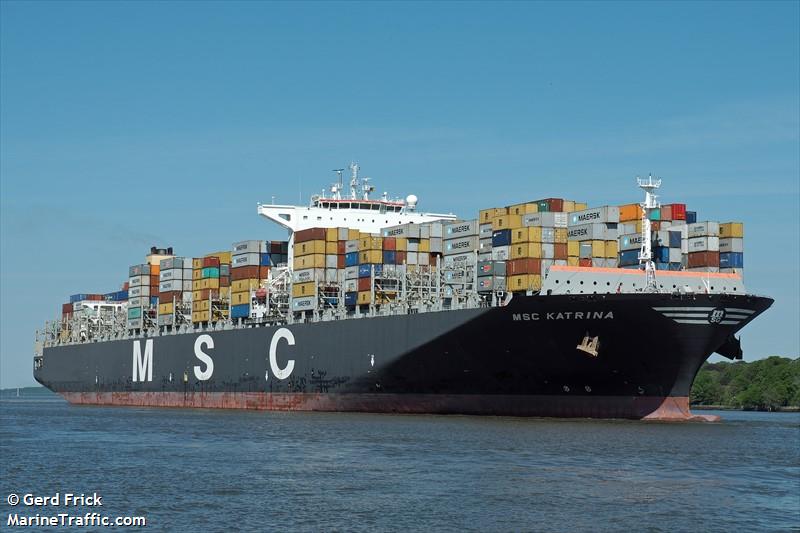India’s Oil Demand Drives CMB Tech Fleet Diversification
By Dimitri Rhodes Nov 7 (Reuters) – Belgian oil tanker company CMB Tech says it will focus on the fast growing market in India as it reported third quarter results...


MSC Katrina. File Photo: Gerd Frick / MarineTraffic.com
Investigators in Germany are calling on the International Maritime Organization to update regulations related to the carriage of charcoal cargoes in containers after separate fires on board two containerships.
In both cases, the self-ignition of charcoal cargoes was found to be the source of the fires.
The fires broke out on board the Panamanian-flagged MSC Katrina on November 2015 and on board the German-flagged Ludwigshafen Express on February 2016.
In each case, the charcoal cargoes were loaded in bulk in containers originating from Borneo, Indonesia and destined for the same consignee in France.
Due to the similarity of both cases, the two incidents were summarized in one investigation report published by Germany’s Federal Bureau of Maritime Casualty Investigation (BSU).
In the first incident, taking place on 20 November 2015, containers containing charcoal caught fire on board the MSC Katrina when the vessel was in the Elbe estuary. The fire prompted a response from firefighters with Germany’s Central Command for Maritime Emergencies, who extinguished the fire with no damage to the vessel and only minimal damage to the containers.
The Ludwigshafen Express, meanwhile, suffered a fire while underway in the Red Sea on 21 February 2016. The vessel’s crew was successful in extinguishing the fire and there was no damage caused to the vessel.
In order to prevent similar accident from occurring in the future, the Bureau of Maritime Casualty Investigation has recommended that Germany’s Federal Ministry of Transport and Digital Infrastructure call on committees of the International Maritime Organization to amend regulations of the International Maritime Dangerous Goods (IMDG) Code in order to prevent the self-ignition of charcoal which is not classified as a class 4.2 dangerous good.
Under the IMDG code, only charcoal of animal or plant origin is classified as a self-heating class 4.2 substance.
The BSU further recommended that the IMO consider updating stowage requirements that ensure that any type of self-heating substance is always transported on deck with sufficient accessibility. A similar recommendation was also made to Mediterranean Shipping Company, operator of MSC Katrina, regarding updating its procedural instructions and guidelines pertaining to cargo stowage so that self-heating cargo loaded in containers is always transported on deck with sufficient accessibility
The final recommendation was directed towards Orient Overseas Container Line, as the contracting carrier of the Ludwigshafen Express, to forward information on cargo to partners within the slot charter agreement even if it does not constitute dangerous goods, but poses a heightened risk, such as that of self-heating.
With regards to the Ludwigshafen Express, OOCL co-operated with Hapag-Lloyd in a slot charter agreement within the framework of an alliance. During the investigation, a Hapag-Lloyd representative stated that the containers containing the charcoal would not have been transported since charcoal from Indonesia was on the company’s exclusion list.
As always, we encourage you to read the entire Federal Bureau of Maritime Casualty Investigation at the following link (opens as pdf in window): Investigation Report 455/15 and 58/16
Join the gCaptain Club for curated content, insider opinions, and vibrant community discussions.


Join the 110,145 members that receive our newsletter.
Have a news tip? Let us know.
Access exclusive insights, engage in vibrant discussions, and gain perspectives from our CEO.
Sign Up




Maritime and offshore news trusted by our 110,145 members delivered daily straight to your inbox.



Essential news coupled with the finest maritime content sourced from across the globe.
Sign Up